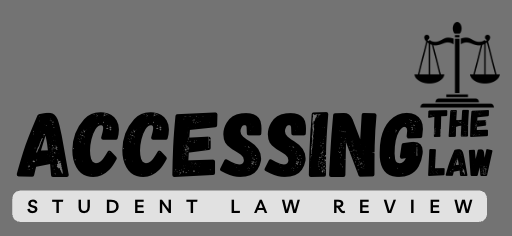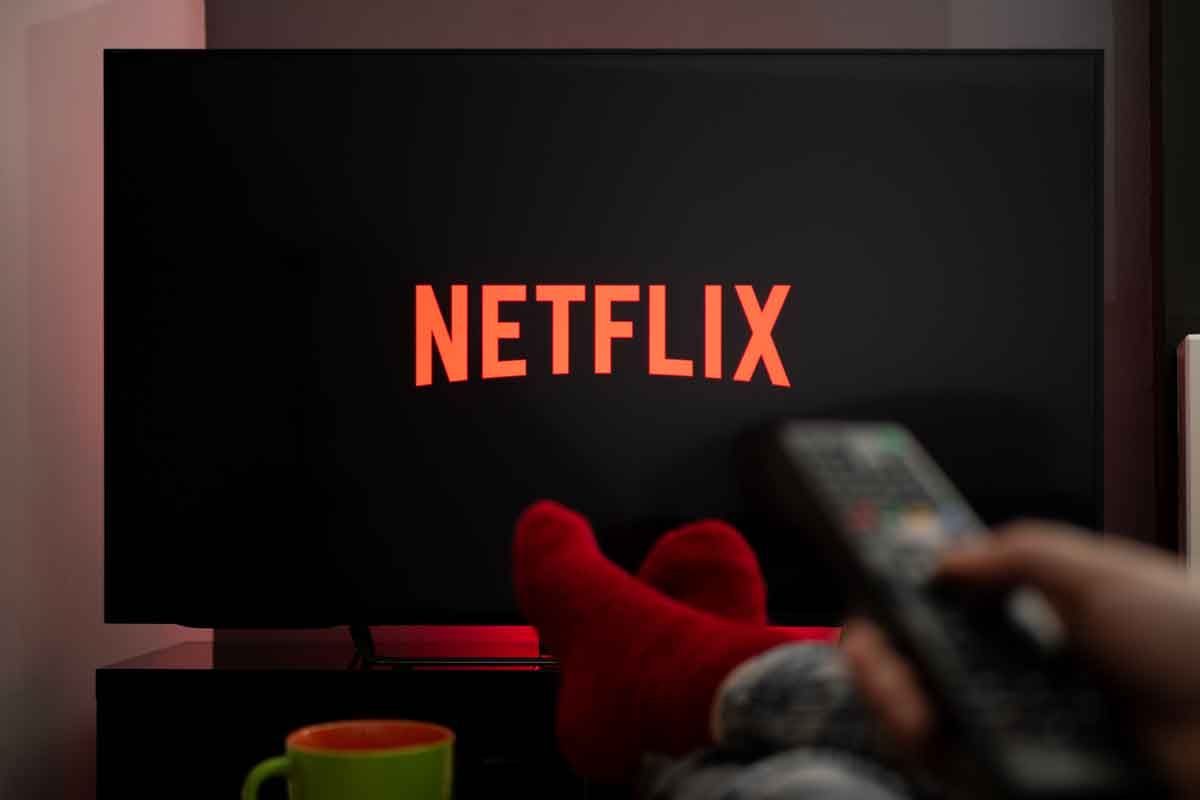Media Law: Denton, et al. v. Netflix Inc. (2024)
Writers: Shriya Alli, Alex Bowles, Sofia Matute, Abia Siddiqui, Jakob Tawney, Jaritzza Zuno
Edited by Savannah Miller and Anna Ramesh
What is Denton, et al. v. Netflix Inc.?
On November 15th, former professional boxer "Iron" Mike Tyson and YouTuber Jake Paul fought in the very first live streamed boxing match in Netflix history. With about one out of every five Netflix subscribers tuning in to the event, this match aimed to attract a large number of younger viewers from Paul's social media following and a more traditional boxing crowd from former heavy-weight champion Tyson. This novelty match was fueled by the spectacle of two celebrities with controversial pasts fighting over a seemingly petty rivalry as Netflix marketed the match as an unmissable event at no extra cost to subscribers. However, during the match, thousands of people reported issues like buffering, freezing, and not being able to watch at all. Many subscribers also reported receiving no refund or technical support, which led to widespread frustration and a social media backlash against Netflix.
Therefore, in November 2024, Ronald "Blue" Denton filed a class action lawsuit against Netflix in the 13th Judicial Court in Hillsborough County, Florida after the Jake Paul vs. Mike Tyson live stream failed for thousands of viewers. A class action lawsuit is a civil lawsuit in which one or more plaintiffs (group that brings a case against another entity or individual) makes a claim and sues the defendant (the group that the case is brought against) on behalf of a larger group of individuals who have similar legal claims against an organization or company. In Denton, et al. v. Netflix Inc., the lawsuit represents the thousands of Netflix subscribers who experienced streaming issues during the fight. Furthermore, Denton argued that Netflix failed to deliver the stream as promised and misled subscribers about its ability to manage the high demand. The lawsuit claims Netflix breached its contract by not meeting its responsibility to provide a functional live stream, which is a violation of the company's agreed-upon obligations. In Denton, et al. v. Netflix Inc., Denton et al, as the plaintiffs, contend that Netflix breached its contract by not providing quality service as promised for the live event, which they paid for through their Netflix subscriptions. Additionally, the plaintiffs argue that Netflix violated both state and federal consumer protection laws which focus on protecting consumers from deceptive or fraudulent business practices. In this case, the plaintiffs claim that Netflix violated consumer protection laws by misleading its customers and advertising a live streaming experience it failed to deliver. Denton is asking for over $50 million in damages on behalf of everyone who paid to watch but could not. Since this is a proposed class action lawsuit, the damages would be intended for all affected subscribers, not just Denton. If the court approves the class and the case is successful or settled, eligible subscribers who experienced issues and submit a valid claim would receive a portion of the total compensation. The case highlights growing concerns about the reliability of live streaming platforms and their accountability to paying customers.
Background
Consumer protection laws are designed to prevent businesses from misleading, exploiting, or deceiving customers. At both the state and federal levels, these laws aim to ensure fairness, transparency, and accountability in commercial transactions, particularly regarding how companies market and deliver products and services. For example, the Federal Trade Commission Act prohibits business practices that are considered unfair or deceptive. Meanwhile, legislation like the Restore Online Shoppers' Confidence Act (ROSCA) sets clear requirements for how companies must disclose the terms of online purchases, especially those involving subscriptions or recurring payments.
In Denton, et al. v. Netflix Inc., consumer protection statutes such as unfair and deceptive practices lie at the heart of the case. The plaintiffs argue that Netflix advertised the event as a live streamed boxing match between Jake Paul and Mike Tyson while being aware of significant uncertainty about whether the event would proceed as planned because of concerns surrounding Tyson's health. If the courts side with the plaintiff's allegations, this could constitute a deceptive business practice. This occurs when a company knowingly misrepresents or omits information in a way that causes consumers to make a purchase they otherwise might not have made. More specifically, the plaintiffs allege that Netflix misled consumers into believing they were paying for a real-time, competitive sporting event, when the circumstances surrounding the event suggested that might not be delivered. In addition to misrepresenting the nature of the event, the lawsuit also raises concerns about the live stream's quality. The plaintiffs, and many viewers in general, claim they were promised a clear and stable digital broadcast but received a subpar experience, which may further support the allegation that Netflix failed to provide the product consumers reasonably expected, another key concern addressed by consumer protection law.
There have been several past class action lawsuits against large streaming companies regarding consumer protection laws and straightforward advertising that helped establish precedent, or an example guideline for future cases, including Denton, et al v. Netflix, Inc. For example, National Association of the Deaf (NAD) v. Hulu was a class action lawsuit which argued that Hulu did not provide acceptable quality for their closed captions and did not have formal closed captions for much of their content. This issue led to consumer dissatisfaction, both within and outside of the deaf community. Therefore, in 2016, Hulu reached a settlement with the NAD and agreed to add full-length closed captions to their content and meet standards set by the Federal Communications Commission (FCC) whose primary purpose is to regulate communication channels and the Americans with Disabilities Association's goal to make media more accessible.
In another case, Napoleon v. Amazon.com Inc., was a class action lawsuit filed in February 2024 alleging that Amazon misled consumers by advertising Amazon Prime as including ad-free streaming on their Prime streaming services. This complaint arose after Prime subscribers noticed ads on TV shows and movies when watching Prime media, and Amazon's requirement of an additional $2.99 a month for an ad-free streaming version. While a federal judge ultimately dismissed the case on the grounds that Netflix never promised a permanent ad-free service, both of these cases tie back to Denton, et al. v Netflix Inc. because they handle large video streaming companies that were accused of failing to deliver high quality service or appropriately advertise their content to their subscribers.
Depending on one's plan, a Netflix subscription can cost $7.99 for a plan with ads and $24.99 for a premium membership, per month. Over time, this can equate to hundreds or even thousands of dollars, so users often demand high quality from their subscription-based media.
Conclusion
As of June 1st, 2025, Netflix has not submitted an official answer or motion to dismiss in response to the lawsuit. Under federal civil procedure rules, a defendant usually has 21 days from the date of service to respond, raising questions about the delay on Netflix's part. Thus, this matter has not proceeded to either settlement negotiations, discussions where parties attempt to resolve disputes without proceeding to trial, or class certifications, the process in which the court determines whether plaintiffs can proceed as a group rather than as individuals. However, the impact of the case was immediate as Netflix quickly faced negative publicity via different social media platforms. Subscribers quickly expressed their frustration via X and Reddit with statements criticizing Netflix, expressing disappointment, and reassuring one another that the streaming issues were widespread. Netflix released a statement approximately two months after the initial lawsuit was reported, speaking to the value of the live stream and the success of the event. Additionally, Netflix has not directly issued a statement regarding the lawsuit, as consumers' expectations for future live streaming services have been made explicit. Moreover, should this case go to trial, the verdict could significantly influence how streaming services can be held accountable and the legal obligations of streaming platforms under consumer protection statutes.
A favorable outcome for the plaintiffs could compel streaming platforms such as Netflix to make their live streams more reliable and employ clearer advertising. In the long term, this case may drive consumers to challenge digital service providers when promised quality is not delivered, reinforcing the importance of transparency in media and advertising.
Works Cited
Bolt_McHardsteel. "R/Netflix on Reddit: Worldwide Buffering Issues…." Reddit.com, November 2024.
https://www.reddit.com/r/netflix/comments/1gscjg3/worldwide_buffering_issues/.
ClassAction.org. "Netflix Sued over Buffering, Glitches during Mike Tyson-Jake Paul Fight." ClassAction.org,
November 25, 2024. https://www.classaction.org/news/netflix-sued-over-buffering-glitches-during-mike-tyson-jake-paul-fight.
Counsel Stack. "Netflix Tyson Paul Fight Lawsuit." Counsel Stack, May 23, 2025.
https://www.counselstack.com/articles/netflix-tyson-paul-fight-lawsuit.
Federal Trade Commission. Federal Trade Commission Act of 1914. Washington, D.C.
https://www.ftc.gov/legal-library/browse/statutes/federal-trade-commission-act.
Gardner, Eriq. "Netflix Hit with Lawsuit over Jake Paul-Mike Tyson Streaming Event." The Hollywood
Reporter, May 15, 2025. https://www.hollywoodreporter.com/business/business-news/netflix-lawsuit-streaming-jake-paul-mike-tyson-1236067846/.
Guinhawa, Angelo. "Netflix Facing Backlash over Big Issue in Mike Tyson-Jake Paul Fight." athlonsport.com,
November 14, 2024. https://athlonsports.com/boxing/netflix-facing-backlash-big-issue-mike-tyson-jake-paul-fight.
Jennings, Rebecca. "The Real Reason Mike Tyson Is Fighting Jake Paul." Vox, November 14, 2024.
https://www.vox.com/culture/385235/jake-paul-mike-tyson-fight-netflix.
Leahey, Colleen. "What Are Consumer Protection Laws?" Investopedia. Last modified August 4, 2023.
https://www.investopedia.com/articles/pf/10/know-your-consumer-protection-laws.asp.
Loftus, Rikki. "Netflix Breaks Silence on Jake Paul vs Mike Tyson Streaming Issues amid $50,000,000
Lawsuit." UNILAD Tech, December 4, 2024. https://www.uniladtech.com/streaming/netflix/netflix-breaks-silence-jake-paul-fight-lawsuit-850523-20241204.
Ma, Jason. "In the Mike Tyson vs. Jake Paul Fight, Their Paydays May Have Been Vastly Different." Fortune,
November 16, 2024. https://fortune.com/2024/11/16/mike-tyson-vs-jake-paul-fight-payday-estimates-40-million-20-million/.
Rizzi, Corrado. "Netflix Class Action Lawsuit: Streamer Sued over Buffering, Glitches during Mike Tyson-
Jake Paul Fight." ClassAction.org, December 3, 2024. https://www.classaction.org/news/netflix-class-action-lawsuit-streamer-sued-over-buffering-glitches-during-mike-tyson-jake-paul-fight.
Srivastava, Aditi. "Netflix Hit with $50M Class-Action Lawsuit over Mike Tyson-Jake Paul Fight Streaming
Glitches." MSN, November 21, 2024. https://www.msn.com/en-us/sports/boxing/netflix-hit-with-50m-class-action-lawsuit-over-mike-tyson-jake-paul-fight-streaming-glitches/ar-AA1uvD8D?ocid=TobArticle.
Top Class Actions. "Netflix Customers File Class Action over Tyson-Paul Streaming Issues." Top Class
Actions, November 29, 2024. https://www.topclassactions.com/lawsuit-settlements/lawsuit-news/netflix-customers-file-class-action-over-tyson-paul-streaming-issues/.
WDBJ7 News. "Man Sues Netflix over Poor Streaming during Tyson vs. Paul Fight." WDBJ7, November 21,
2024. https://www.wdbj7.com/2024/11/21/man-sues-netflix-over-poor-streaming-during-tyson-vs-paul-fight/.
Wooding, Von. "Netflix Tyson Paul Fight Lawsuit." Counsel Stack Learn, May 23, 2025.
https://blog.counselstack.com/netflix-tyson-paul-fight-lawsuit/.
Zilber, Ariel. "Netflix hit with $50M class-action lawsuit over Mike Tyson-Jake Paul fight streaming
glitches." nypost.org, November 21, 2024. https://nypost.com/2024/11/21/media/netflix-sued-for-50m-over-mike-tyson-jake-paul-fight-streaming-glitches/.

